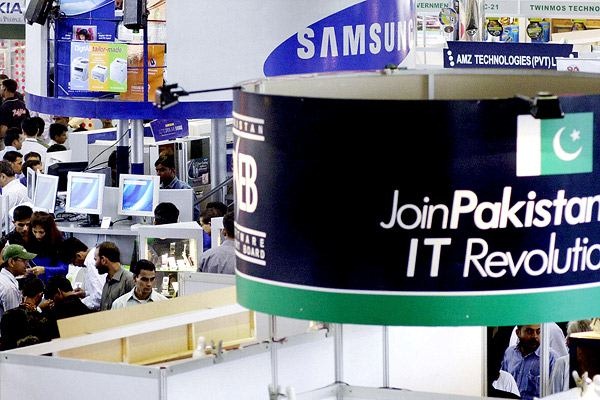DUBAI ( ABRAR MUSTAFA )
The Pakistan enterprise hardware market, which comprises servers and external storage, expanded a healthy 18.8% year on year in 2013, according to research released today by International Data Corporation (IDC). The global advisory services firm’s EMEA Quarterly Server and Disk Storage Systems Tracker shows that enterprise revenue in Pakistan has been on a consistent uphill growth trajectory for the past few years, with further growth anticipated for 2014.
“Despite considerable political turmoil and social unrest, Pakistan’s enterprises have managed to keep the IT investment fervor upbeat as they strive to remain current in a rapidly changing technology landscape,” says Zeeshan Gaya, research manager for systems and infrastructure solutions at IDC Middle East, Turkey, and Africa. “The telecommunications and banking sectors are the key purchasers of enterprise hardware in Pakistan and have contributed considerably to the increase in related spending. The government and education sectors have also been notably active in this space.”
IT adoption in Pakistan remains on par with the IT adoption trends of the wider Middle East and Africa region. Indeed, enterprises have been very current in terms of their implementation of emerging technologies like virtualization and cloud. However, a sizeable disparity exists in the adoption trends of different verticals in Pakistan, with the banking, telecommunications, and government sectors taking the lead in embracing and updating new technologies, while other verticals such as retail, textiles, local banks, and manufacturing can generally be found lagging behind.
“Pakistan’s IT industry needs to continuously re-invent itself in order to thrive amid the geostrategic, socioeconomic, and political challenges that are quite unique to the country,” says Gaya. “Aside from the macro scenario, the challenges faced by the country’s enterprises are in stark contrast to those faced in many other parts of the world. Given this unique scenario, passive or indirect infrastructure elements such as electricity, power and cooling, and disaster planning play a vital role in determining enterprise IT readiness and growth in Pakistan.”
The Pakistani IT industry has played host to rapid growth in the portfolio of systems integrators and value-added resellers in recent years. An increased focus on the country by multinational hardware and software vendors has driven the proliferation of IT support and services, which has in turn further promoted technology adoption. The market is also showing a growing acceptance for service-based models like cloud provisioning and hosting, as enterprises seek out a means for more dependable infrastructure.
In terms of the individual enterprise hardware solutions, the value of Pakistan’s x86 server market expanded 26.3% year on year in 2013, with rack servers contributing 58.1% share, followed by blade, tower, and density-optimized servers at 24.9%, 11.6%, and 5.4%, respectively. Meanwhile, the external storage market expanded 19.5% over the same period. Entry-level storage models with Fibre Channel Protocol are the most common among enterprises in Pakistan, with a key focus on providing basic storage that is sufficient to support the needs of the datacenter.
“Overall, it is patently clear that the enterprise IT market in Pakistan is on a definite growth trajectory, with the country trying to remain very current in terms of its technology adoption,” concludes Gaya. “In line with this trend, Pakistani enterprises across various verticals are striving to keep their datacenters future-ready by employing the very latest technologies in a service-based model.”

